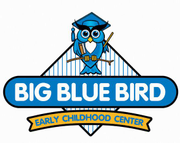A Brief Guide to Children & Self-Regulation

One of the foundations of child care, self-regulation centers on understanding, processing, and managing emotions. It helps children face challenging situations, such as those stemming from overstimulation, boredom, stress, and frustration. Here, learn more about this child care topic and how to encourage your child to self-regulate.
Understanding Self-Regulation
What Is It?
Often confused with self-control—controlling emotions and behavior in social situations—self-regulation concerns learning how to manage difficult circumstances internally instead of acting out. Children with self-regulation skills can generally calm themselves down instead of crying, getting angry, and having a tantrum. They know how to focus, dismiss distractions, follow classroom instruction, and listen to adults.
 A child’s temperament, daily environment, relationship with their parents, and whether they have a sensory or attention deficit disorder affect their self-regulation abilities. Even if hurdles exist, most children’s skills sharpen over time. For example, it’s not uncommon for a 4-year-old to struggle with emotional regulation compared to a teenager who has learned to manage verbal responses and body language in stressful situations.
A child’s temperament, daily environment, relationship with their parents, and whether they have a sensory or attention deficit disorder affect their self-regulation abilities. Even if hurdles exist, most children’s skills sharpen over time. For example, it’s not uncommon for a 4-year-old to struggle with emotional regulation compared to a teenager who has learned to manage verbal responses and body language in stressful situations.
How to Help a Child Self-Regulate
Encourage self-regulation as part of your child care approach by first identifying what triggers outbursts and negative emotional habits, whether crowded grocery stores or frustrating school activities. Find ways to reduce stressors, which may require working with the teacher at your child’s preschool. For example, if your child gets overstimulated at the mall, take a moment to discuss their behavior before entering each shop. Use a calm but serious tone. Have your child hold your hand or sit in a cart instead of allowing them to run around or handle merchandise.
Help them develop coping mechanisms by asking your child to verbalize their emotional or physical feelings. Then, develop a plan of action. If a child starts crying because they don’t want to go to preschool, for example, help them look at the situation differently. A child may resent separation. If you explain you’ll be apart only for a short time and that you left a surprise note in their lunchbox, they’ll likely calm down. When a child is capable of identifying why they’re upset, self-regulation becomes easier.
Discuss self-regulation tactics with the licensed child care providers at Big Blue Bird Early Childhood Center to help your little one thrive. This early education center has served families across the Eastland Parkway area of Lexington, KY, for over 40 years, providing a safe and nurturing preschool environment for children aged 6 weeks to 4 years old. Before- and after-school programs are also available for children up to 10 years of age. Call (859) 299-9277 today to schedule a tour, or learn more about their programs online.
About the Business
Have a question? Ask the experts!
Send your question

